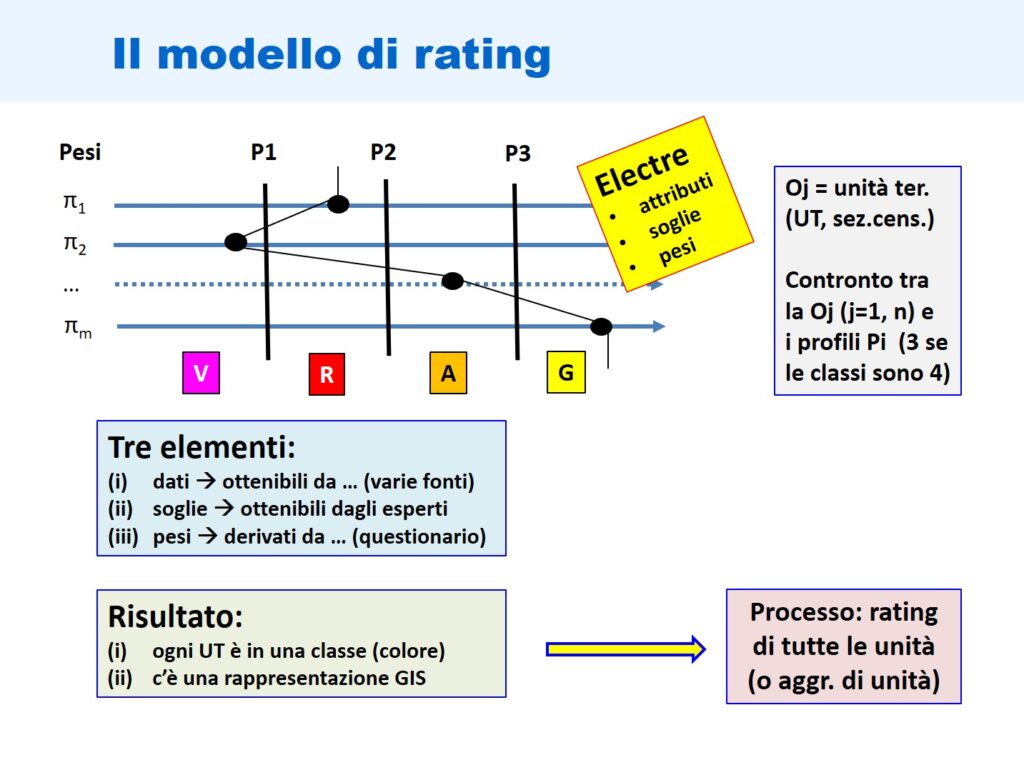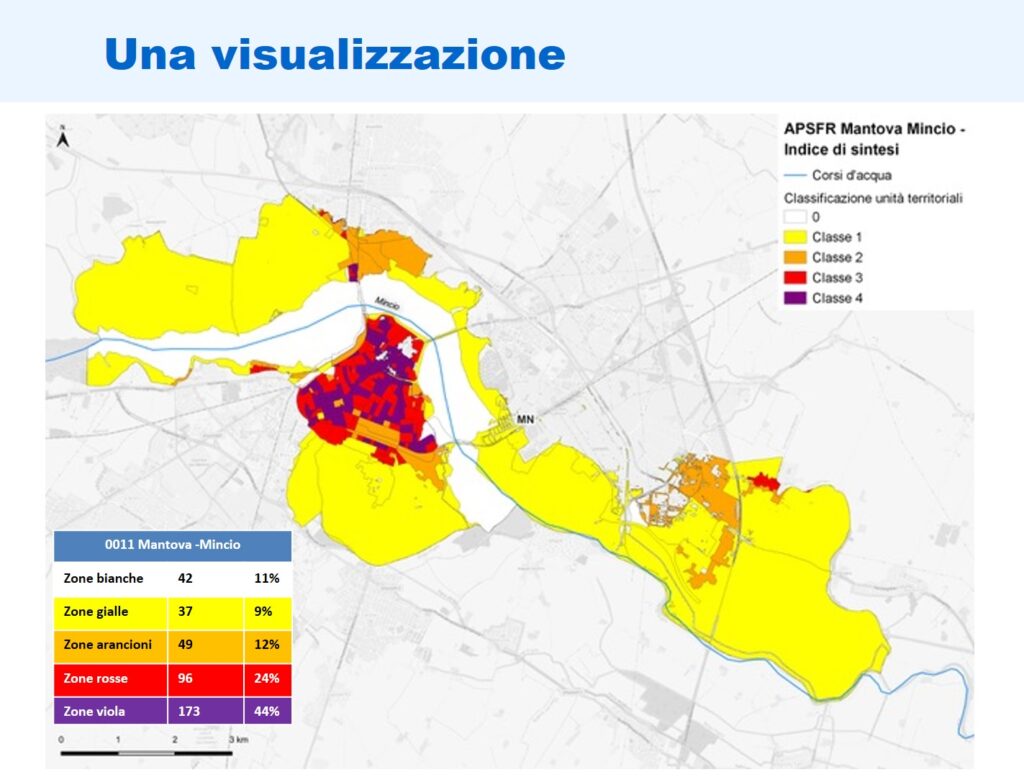Construction of an index for the assessment of flood damage
As part of the MoVIDA project – “Model for the integrated assessment of flood damage” – coordinated by the DICA (Department of Civil and Environmental Engineering) of the Politecnico di Milano in collaboration with the Po River Basin District Authority and 8 other universities and Italian research centers, Poliedra has built a model capable of summarizing the information relating to the various expected damages resulting from flood phenomena in an index and giving a cartographic representation.
The starting point in the construction of the index was the characterization of the expected damage to an area in the event of flooding, carried out in the MoVIDA project through a series of indicators representative of the many environmental, economic, cultural, settlement, … Starting from these, a synthesis process has been defined that provides a representation of the expected damage for each portion of the territory through a model that takes into account the characteristics of the problem: territorial extension and selection of sub-parts, presence of very different elements, different provenance and reliability.
The model created supports a rating process, with the aim of classifying the portions of territory into appropriate predefined damage classes; the damage classes have an order of preference, while within the same class the elements are not ordered. It was decided to use a rating method belonging to the family of Electre models, referred to in the literature as Electre Tri. The connection with a GIS therefore allows to give a cartographic representation of the result obtained, attributing to the areas a color corresponding to their expected damage class.
From a technical point of view, it was necessary to make design choices and define some parameters, in particular the profiles that allow to discriminate between one class and another and the weights that express the importance of each sector considered compared to the others. To this end, in addition to considering experiences already made and reported in the literature, Poliedra has led several discussions among the various actors in the process and interviews with experts.
Client: DICA – Politecnico di Milano
Period: 2021 – 2022







